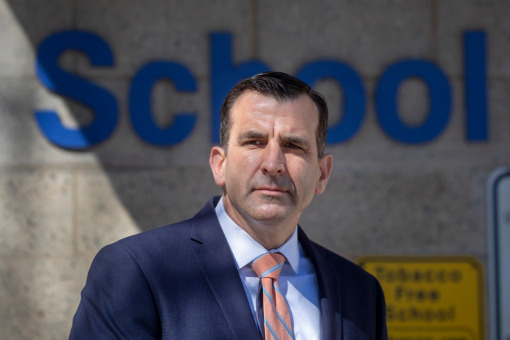Why were the Bay Area’s biggest cities denied key housing funds?

The mayors of the Bay Area’s three largest cities are pushing back after they were denied key affordable housing funds — a shutout they say could cost the region 3,000 desperately needed homes this year and jeopardize future efforts to fight the housing crisis.
For the first time in recent memory, no projects in San Jose, Oakland or San Francisco made the list when a little-known state committee that plays a crucial role in affordable housing financing revealed this year’s first round of funding allocations. As a result, four projects in San Jose, five in San Francisco and five in Oakland now are on hold — and possibly won’t get built at all.
That’s about 1,600 units for low-income and homeless residents that are stalled. Another 1,400 units, which will need funding later this year, are at risk if the state continues to neglect the Bay Area, local experts say.
“We need the state to meet us halfway,” San Jose Mayor Sam Liccardo said. “And to shut out three cities that have very aggressive affordable housing efforts underway suggests that there is something wrong with the allocation formula.”
Liccardo, Oakland Mayor Libby Schaaf and San Francisco Mayor London Breed, along with a group of Bay Area legislators, are pushing for changes they hope will give the region a fighting chance in the next round of funding — which will be announced in August. They’re set to make their case Wednesday, at the next meeting of the obscure California Debt Limit Allocation Committee.
The state committee received 121 applications in its latest funding round, but could grant just 46, according to State Treasurer Fiona Ma. Of those projects, seven are located in smaller Bay Area cities. Because no projects received funding in San Jose, Oakland or San Francisco, and committee staff understands how important it is to equitably distribute housing resources, the committee is considering proposed changes to help level the playing field, Ma wrote in an emailed statement.
But some local officials worry the state’s proposed fixes don’t go far enough.
Most affordable housing projects are bankrolled by a combination of three sources: local funding (such as from Santa Clara County’s Measure A bond), tax credits and federal bonds. It’s the federal bonds piece that San Jose, Oakland and San Francisco now are losing out on. In California, the California Debt Limit Allocation Committee is in charge of authorizing those bonds, and deciding which projects win and lose.
In the past, there were plenty of bond allocations to go around, and developers rarely had an issue securing that funding. But as the Bay Area tried to ramp up affordable housing construction to combat the housing shortage, the selection became more competitive, said Nathan Ho, Liccardo’s senior policy adviser for housing and homelessness in San Jose.
To make matters worse, changes went into effect this year that were supposed to streamline the allocation process, but have shortchanged the Bay Area, he said. The new system favors projects that need less funding — a blow to developers trying to build in expensive Bay Area cities.
The Bay Area mayors and state legislators have proposed several fixes. Among those, they are urging the state committee to give the Bay Area more funding. Currently, the Bay Area gets 17% of all funds that are allocated by region. The Bay Area officials want to raise that to 24%.
“As home to three of the State’s ten largest cities and to one fifth of its population, as well as home to some of California’s largest employers, having a more affordable Bay Area is crucial for the success of the state as a whole,” a group of Bay Area legislators wrote in a letter to the state committee.
The lawmakers, including Sen. Scott Wiener, D-San Francisco, Sen. Nancy Skinner, D-Berkeley, and Assemblyman David Chiu, D-San Francisco, said they have “significant concerns” with the way funding is being allocated.
A handful of Bay Area projects did receive financing in the latest round, including projects in Richmond, Morgan Hill, San Rafael, Sunnyvale, Gilroy and Hayward. Those awards are expected to be finalized by the state committee Wednesday.
But others missed out. After spending years planning and financing the proposed project, the Chinatown Community Development Center applied for $18 million this year to perform crucial renovations on three aging buildings that house some of San Francisco’s lowest-income residents. When the request was denied, it felt like the rug was pulled out from under them, said Executive Director Malcolm Yeung.
“These renovations are critical, frankly, to the life safety of the residents who are living there,” Yeung said. “And because of that, we do need to move this project forward, period. But how we’re going to do that? Frankly, we’re struggling.”

